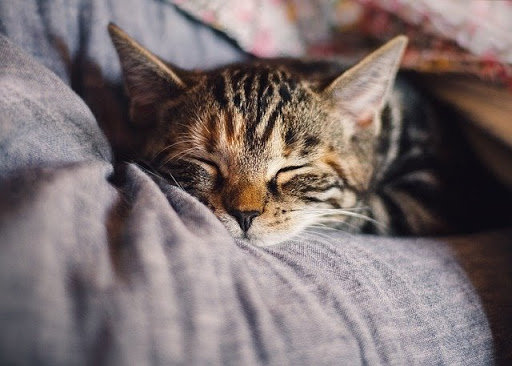By Allen Brown
There’s nothing more heartbreaking for a pet owner than their beloved fluffy playmate falling ill. Pet owners must be aware of the common illnesses that befall cats at different stages of their lives and learn the proper preventative measures to avoid them. While the health conditions they are susceptible to are not always preventable, cat owners can take various steps to ensure their pets are happy and healthy.
If your pet becomes seriously ill, you need to know how to take care of them. That’s why we have created a brief overview so you can quickly take action and nurse your feline friend back to health.
It is highly recommended to book an appointment with your veterinarian at the first sign of illness and if your cat begins showing symptoms. Identifying a problem early can mean the difference between life and death. That’s why it’s important to know what common symptoms to look for.
Among the most common signs that your feline friend is doing poorly is breathing difficulty, drowsiness, or lethargy. If you notice fluid coming from their eyes or nose, or that they are coughing up phlegm, this is a symptom of a likely underlying issue. Diarrhea, vomiting, and any signs of urinary problems are also cause for concern. If you find your cat constantly scratching and licking a specific area, notice sudden weight gain or loss, or a lack of self-cleaning going on, you need to take their condition seriously and seek medical advice.
Cats who are unwell might lose their appetite, so you don’t want to be forceful in your approach to get them to eat. Cats with the flu may not be tempted by food with a mild smell. It’s also important to monitor your cat's weight; if you notice that your pet seems to be eating fine but is losing weight, this is a serious indication that your feline companion may have liver or kidney failure. You must immediately seek medical care in this case. You also want them to eat a regular, healthy, and balanced diet. Luckily, nowadays, you can find nutritious meals to treat your kitty without waiting until your next vet appointment. There is plenty of non-prescription food for cats with kidney disease available on the market. If your pet has a serious illness like kidney or liver disease, opt for strong-tasting foods such as chicken, tuna, liver, etc. to entice them to eat. Furthermore, you can heat up the meal to enhance the aroma. On a separate but relevant note, remember to always provide clean water for your fur baby.
You need to keep a close eye on your pet at all times, but even more so when their health is compromised. You should learn the basic feline first-aid procedures to nurse your fur baby back to health and make things as comfortable for them as possible. Make sure they have a comfortable bed and if they go out in your garden or backyard, make sure there are shaded areas for them to relax and cool down. If you notice your cat vigorously licking or scratching wounds, they may have skin problems that need medical treatment. There are home remedies that you can apply to ease your pet’s discomfort in the meantime, such as applying an ice pack to the itchy patch or washing the sore area with cool saltwater to reduce irritation. Cats typically don’t like to be bathed, but stroking, petting, and comforting them in a soothing tone will help relax them. If the skin problem persists due to fleas or ticks, you’ll want to find a treatment that won’t have any side effects on their health. Invariably, always consult your vet before providing any medication or remedy.
 Consider Different Treatment Options
Consider Different Treatment Options
Depending on the issue at hand, consider the different treatment options available. You must identify any illness early on to avoid limiting your options. Elderly cats need more care and you must have their best interests at heart to put an end to their suffering. Identifying problems as soon as they arise will give you a better chance of nursing them back to health, which is why you must be on the lookout for the common symptoms mentioned above. Felines with serious illnesses like liver or kidney disease will need treatment immediately. Look into all the different treatment options available to ensure your pet is comfortable and on the mend.
It’s important to educate yourself on the most common feline illnesses and how they can be prevented. A lot of serious health issues can be avoided with a proper diet and regular vet appointments. However, if your pet falls ill despite your best efforts, take action immediately, consult your vet, and begin a home remedy plan with the aforementioned tips. In any case, always prioritize your feline’s comfort and happiness.
Comments
No comments on this item Please log in to comment by clicking here